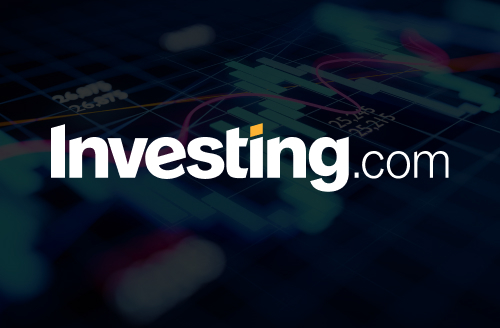
Among the Big Tech giants, has emerged as this year’s top performer. The stock has climbed 32% year-to-date, outpacing and , while remains the lone member of the group in negative territory.
Alphabet’s steady momentum accelerated after April’s Google Cloud Next 2025 conference, but investor enthusiasm notably surged in early September. That was when a federal judge ruled in Google’s favor, allowing the company to retain its Chrome browser. Although the court criticized Google’s practice of “compelled syndication” tied to exclusive licensing agreements, the broader antitrust case is widely seen as a decisive victory for the company.
Now that Alphabet has emerged as the 4th company to have a market valuation above $3 trillion, joining , , and , should investors lock in profits or keep adding to the exposure?
Beyond the Ad Revenue
In the latest Q2 earnings report ending June 2025, Alphabet reported a 14% year-over-year revenue increase to $96.43 billion, followed by an even greater rise in net income of 19%. Out of that total figure, $71.3 billion came from the company’s core advertising business.
Nonetheless, Google Cloud division outshone other business segments by growing 32% YoY to $13.6 billion. For comparison, ’s AWS grew 17.5% while Microsoft’s Intelligent Cloud gained 26% for the same Q2 period. Amazon and Microsoft’s cloud revenues were neck and neck, at $30.9 billion and $29.9 billion, respectively, more than double that of Alphabet.
Yet, despite having a relatively small cloud market share of 12-13%, Alphabet is the most likely to keep gaining ground ahead of its Big Tech rivals.
Alphabet’s Strategic Importance
Earlier in the year, the company announced a $75 billion capital expenditure commitment during 2025, largely for AI data centers. This fits the company’s long-term goals revealed at Google Cloud Next 2025 conference in Las Vegas.
One of the goals is to scale connectivity even further with Cloud WAN, which is purportedly 40% faster than the public internet, featuring enhanced security features. Likewise, to integrate its own Ironwood TPUs next to Nvidia’s Blackwell platform for inferential AI workloads.
In addition to AI-optimized infrastructure, Alphabet’s most important goal is to push for multi-agent systems with Agent Development Kit (ADK) and Agent2Agent (A2A) Protocol. Just for data analytics, BigQuery AI can take advantage of AI agents to automate metadata generation, data pipelines and anomaly detection.
Alongside AI agents, Alphabet is building a full AI stack generation starting with multi-modal Gemini 2.5 Pro, and continuing with Imagen 3 (text-to-image), Veo 2 (text-to-video), Chirp 3 (text-to-audio) and Lyria (text-to-music).
With the introduction of Gemini 2.5 Flash Image (Nano Banana), offering content editing on top of generation, Alphabet is now directly competing with . Although Adobe offers free plans with Firefly and Express, the company now has to contend with Google’s much larger network effect and reach.
In short, this all leads to a company that has a potential:
Lock on internet searches, video sharing, content generation.
Lock on Android ecosystem and store, with clear moves toward a walled garden.
Lock on enterprise cloud adoption, where AI agents can become embedded.
Lock on foundational AI models spanning text, image, video, audio and music.
Lock on global distribution channels that integrate ads, apps, and AI services.
Needless to say, it is exceedingly beneficial for governments seeking to maintain hegemonic influence to have such a tool at their disposal. The US tech stack already dominates the EU economy, with 74% of all publicly listed EU companies reliant on Big Tech.
This also means that Alphabet is critical in the shaping of narratives, and what is even acceptable/accessible to think on any given subject. After all, earlier in the year, the company withdrew from its prior pledge to not use AI for weapons and surveillance.
Although and share this role through their deep entrenchment in enterprise and defense contracts, Alphabet’s reach is far broader. Its platforms span consumer attention, developer ecosystems, and AI agent deployment.
The Bottom Line
Just as Palantir and Oracle should not be viewed as ordinary software vendors, Alphabet cannot be treated as a typical growth stock. This information giant sits at the intersection of economic power, narrative control, and technological dependency.
In effect, Alphabet functions as a digital pillar of statecraft – its platforms are too deeply embedded in global infrastructure to be easily displaced. That makes the company more resilient to regulatory or antitrust headwinds than many might expect.
Wall Street seems to agree, having zero bearish analysts. According to WSJ consensus data, 49 analysts are bullish on GOOGL while 13 suggest holding. The average price target stands at $236.85, compared to the current $250.92 per share, with a range spanning from $187 at the low end to $300 at the high.
For investors, the takeaway is straightforward: long-term holders may consider trimming profits after a 32% YTD rally, but for new capital, patience is key. Waiting for the next broad market pullback could provide a better entry point into what remains one of the most strategically important companies in the world.
***
Looking to start your trading day ahead of the curve?
Get up to speed before the bell with Bull Whisper—a sharp, daily premarket newsletter packed with key news, market-moving updates, and actionable insights for traders.



